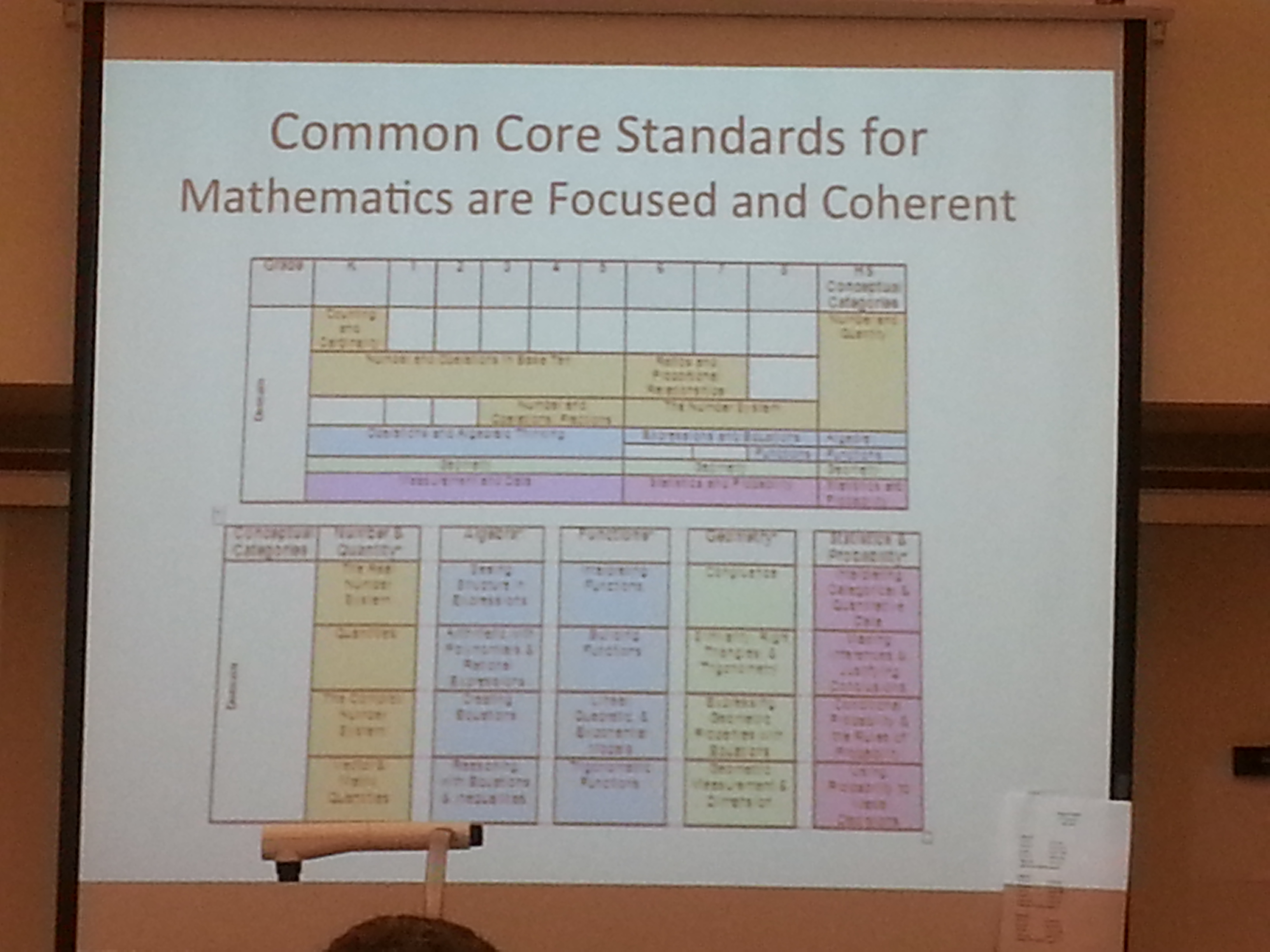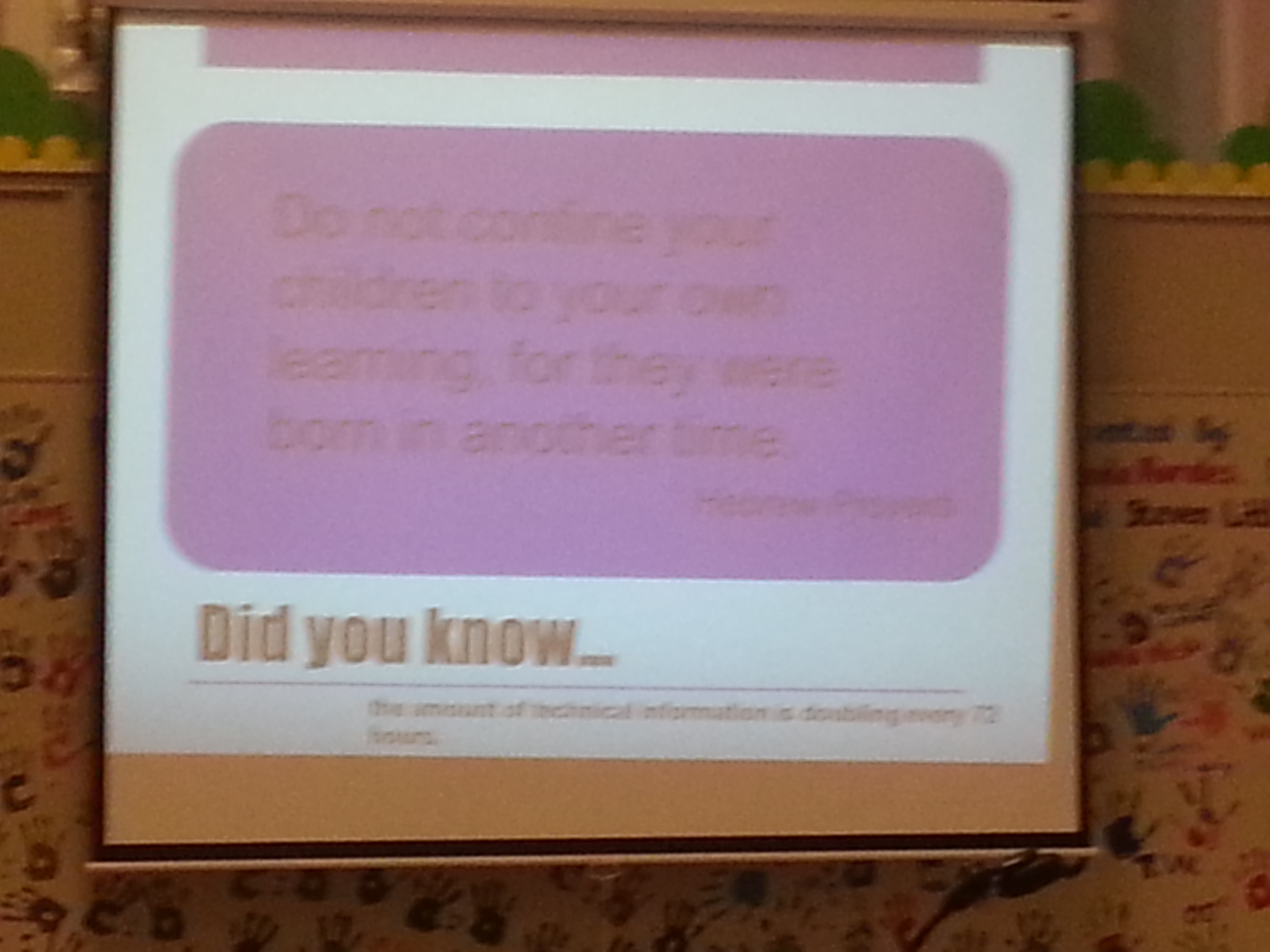Parent Information Night On The Common Core
8 min read
Last night, on Tuesday, June 12th, I attended what was called a "Parent's Academy" on the in-progress Common Core rollout. The event was put on by Portland Public Schools. The goal of the event was stated clearly on one of the handouts they provided:
The purpose of our presentation tonight is to help families understand the new Common Core State Standards and how these changes will benefit your child's education. Our intent is to help you to become informed about ways you can help your child be successful.
This goal set the tone for the evening, and attempted to provide a context: the Common Core Standards are here, they will benefit your child's education, we have a plan, and you can help. The goal of the meeting was to provide a positive, forward looking message - both about the quality of Common Core, and about the ways in which the District is preparing for the rollout. As one presenter put it, "The fact is, they're here, they're adopted, and we're moving forward with them." Several times in the evening, we heard very clearly that the standards are "Focused and Coherent."

The event had three distinct sections - from 6:30 to 6:50, the entire group was given an overview by the director of Instruction, Curriculum, and Assessment for the District. After the introductory session, there were two subject-specific breakout sessions. The first ran from 6:55 to 7:40; the second from 7:45 to 8:30.
At the outset of this post, I need to highlight that the representatives from Portland Public School District did a great job. In each session, the presenters were met with questions that ranged from curious to skeptical to downright hostile, and they answered these questions with a level of poise and professionalism that deserves notice and praise.
However, some of the questions asked were both fair and difficult. For example, the presenters were asked how they could vouch for the Smarter Balanced tests, given that the tests weren't complete. The presenter responded that the tests were under development, and that the questions were designed to assess how people could apply skills. The response the presenter gave is accurate, but, unfortunately, it's not directly related to the question. We'll get back to this disconnect later in the post, but this disconnect isn't the fault of the presenter - there isn't a good answer to the question, and the presenter had the unfortunate job of having to provide answers to things that are impossible to answer, at least while sticking to talking points.

During the event, there were also some areas of unintended irony - the person providing the initial overview used several quotations from Karl Fisch's Did You Know presentation, which - having been created in 2006 - predates the Common Core. Heck, Tom Hoffman's fact check of "Did You Know" predates the Common Core. I was also struck that a presentation designed to describe the road to 21st Century Skills was contained within the 20th Century Information Zombie known as PowerPoint.
The presenters also stuck very close to the "approved" history of the Common Core - there was no mention that, of the 28 original authors, fully half worked for testing organizations; or that the Gates Foundation has issued at least $150 million in grants to help support Common Core.
In fairness, though, within this context, getting into the political backstory is counterproductive. There were some parents in the audience who really wanted to discuss the background of the Common Core to the exclusion of all else, but the goal of this meetup wasn't to discuss the validity of the Core Standards or the process by which they came into existence; rather, it's to figure out what the implementation will look like. I also suspect that a secondary (or maybe even a primary) goal of the event was to garner parental support for the rollout, but - at least based on the self-selecting group of parents who came to this event - it feels a long way off before there is anything approaching excitement about the Common Core rollout.
In this parent's information session, the focus was on what kids would be seeing in the classroom, and from what was discussed in this event, in the bulk of the day to day for the kids - especially in the elementary grades - things will look remarkably similar. It was also interesting to see how questions about curricular implementation led to issues of staffing - for example, one parent asked a question about reading strategies, and the response led directly to issues that could be addressed by lower student/teacher ratios. I didn't get the sense that this was intentional - the Common Core rollout is taking place in a time when schools are chronically understaffed, and in talking about anything related to the daily reality of schools, staffing issues are unavoidable.
In discussing the Common Core Standards, the discussion also led pretty directly to curriculum. Although standards and curriculum are two separate things, curriculum is the face by which people see the standards, and I'd be curious to know the cost of this implementation in terms of new curriculum adoption, and teacher professsional development to deliver it. There were also some questions about how students with learning differences will be supported - in both instruction and assessment - and the path for these students was not immediately clear in the discussion.
The issues around testing and assessment also drew some attention. The presenters didn't have specific information about time currently spent on testing relative to time required for testing as part of the Common Core rollout, but the general inclination was that, between both formative and summative assessments, there would be an increase in testing overall.
As we were discussing the assessment piece, I was struck by how the move to a fully computerized testing environment shifts the dynamics of test taking. There has already been a lot of discussion about how some districts lack the computing infrastructure to give the new tests, and about how schools already feel like they are overtested - and even Arne Duncan admits that the transition to Common Core will involve "a couple of choppy years." However, what struck me in talking over the details of the new test is how kids who are comfortable with a keyboard and mouse will have an advantage on these exams. The new exams are designed to be taken on a computer; every answer gets keyed in, so a kid who has practice writing at a keyboard will be more comfortable in this test taking environment. Several parents in the room noted that they don't have computers in their homes, or that they have a single computer that is shared among multiple people. From this perspective, the new tests have the potential to highlight issues related to the digital divide, instead of measure academic performance.

And, of course, this assumes that the tests actually measure anything of value. Given that the tests don't yet exist, we are taking the value of the tests on faith at this point. During one of the information sessions, I was looking at the practice test with one of the presenters. As we went to start the practice test, we were repeatedly met with an "Access Denied" error. While this is likely not any major technical issue, from a symbolic place it's pretty priceless. But, even with this technical glitch, the presenter I was talking with didn't miss a beat, and she moved on to highlight some of the questions shared on the Smarter Balanced web site.
The presenters - who were all district-level people, many of whom are working directly with teachers to help them prepare for the Common Core rollout - did a great job. They are tasked with preparing people for a program many people either actively dislike or partially misunderstand. The people presenting the Common Core didn't write the Common Core. The people presenting the Common Core didn't make the decision to adopt the Common Core. The Common Core came about as a result of political, economic, and educational decisions - and the people who made those decisions are fully isolated from the effects of those decisions on the lives of individuals within our public school system.
And this is my single biggest take away from the event: teachers are left explaining a system they didn't develop and didn't choose. Teachers become the public face of policy decisions that originate thousands of miles away. When policy makers create a mess - and I would describe a set of standards that are poorly understood, backed by curriculum that is not yet defined, assessed by testing instruments that do not yet exist, as "a mess" - teachers are the ones who attempt to explain it. Our teachers are doing a great job. I hope, at some point, our policy makers catch up.

